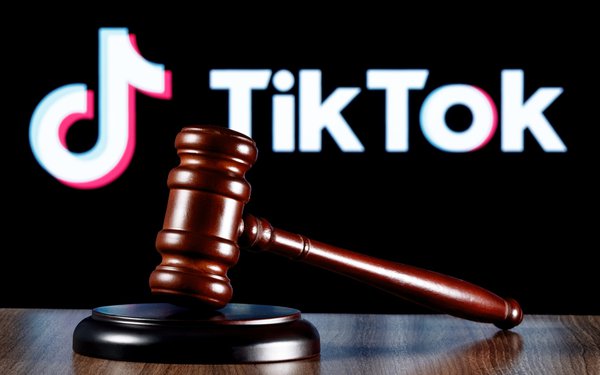
A law that could result in a ban on TikTok is
unconstitutional because it was driven by concerns about propaganda, attorneys for the company and a group of users argued Friday to the Supreme Court.
“The government has no
valid interest in preventing foreign propaganda,” TikTok lawyer Noel Francisco said Friday morning in the course of an argument that lasted two-and-a-half hours.
"The government's real target, rather, is the speech
itself, its fear that Americans, even if fully informed, could be persuaded by Chinese misinformation," Francisco added. "That, however, is a decision that the First Amendment leaves to the
people."
U.S. Solicitor General Elizabeth Prelogar, who defended the law, countered that it was a valid national security measure that aimed to “surgically remove the ability of a
foreign adversary nation to get our data.”
advertisement
advertisement
The arguments came in a challenge brought by TikTok and content creators to the Protecting Americans from Foreign Adversary Controlled
Applications Act (H.R. 7521), which
was signed into law last year and will prohibit app stores and websites from distributing TikTok unless it separates from
China-based parent company ByteDance by January 19.
Congress expressed two reasons for passing the bill -- one was that the Chinese government may be able to access data about TikTok's users,
and the second was that China could use the app to influence public opinion.
TikTok and content creators sued last year to invalidate the measure, arguing that shutting down a communications
platform used by an estimated 170 million Americans violates TikTok's free speech rights as well as the rights of its users.
The D.C. Circuit Court of Appeals rejected that argument late last
year, ruling that the law was justified by national security concerns -- including the risk that the Chinese government could “covertly” manipulate content.
Francisco as well as
counsel for the users, Jeffrey Fisher, argued Friday that attempting to outlaw propaganda -- or “covert content manipulation” -- violates the First Amendment. The First Amendment typically
prohibits the government from attempting to suppress speech based on the ideas expressed.
Congress's “impermissible motive” of preventing propaganda “taints the whole
act,” Fisher argued.
That argument appeared to gain traction with some of the justices -- though not necessarily most of them.
Justice Neil Gorsuch suggested that justifying the
law based on concerns about propaganda was “paternalistic.”
“Don’t we normally assume that the best remedy for problematic speech is counter-speech?” he asked
Prelogar.
He also questioned whether concerns about “covert” content manipulation could be addressed by requiring disclaimers.
Justice Elena Kagan also appeared to question
why the “covertness” of TikTok's algorithm was of particular concern when other social media platforms use algorithms that aren't clear to users.
“They're all black
boxes,” Kagan told Prelogar.
Prelogar mainly focused on Congress's concerns about data harvesting, pointing out that ByteDance had already drawn on information collected from TikTok to track
two American journalists.
None of the justices explicitly said how they planned to rule, but Chief John Roberts appeared likely to side against TikTok, repeatedly characterizing the law as a
statute that merely affected the company's corporate structure.
Justice Brett Kavanaugh appeared particularly receptive to lawmakers' expressed fears about data harvesting.
“I
think Congress and the President were concerned that China was accessing information about millions of Americans, tens of millions of Americans, including teenagers, people in their 20s, that they
would use that information over time to develop spies, to turn people, to blackmail people, people who, a generation from now, will be working in the FBI or the CIA or in the State Department,"
Kavanaugh said in an exchange with Francisco.
"Is that not a realistic assessment by Congress and the President of the risks here?” Kavanaugh asked.
Francisco replied that this
concern could be addressed with a law that would prohibit TikTok from sharing sensitive user data with any other entity, including ByteDance.
Several justices questioned counsel for both sides
about TikTok's fate if the law went into effect.
Francisco said the app could "go dark" on January 19 unless the statute was stayed, reiterating TikTok's argument that divestiture isn't
feasible.
But Prelogar expressed skepticism, telling the court that the company may be playing “chicken,” and would in fact arrange a sell-off if the law takes effect.
She
added that even if TikTok shuts down on January 19, the app could reappear in the U.S. if ByteDance divests at a later date.
Outside advocacy organizations, lawmakers and others -- including
President-elect Donald Trump -- have weighed in with the Supreme Court over the law.
Free Press and other digital rights groups have argued the statute should be struck down.
“The oral argument at the Supreme Court underscored the fact that the TikTok ban is ultimately about the content and viewpoints expressed on the app,” Free Press policy counsel Yanni
Chen stated after Friday's argument.
Chen added that a “less censorial approach” to concerns about data harvesting would be to pass privacy legislation.
Trump, who
previously attempted to ban TikTok, argued late last year that the Supreme Court should temporarily delay the law in order to give him time to negotiate a deal that will allow the app to remain in the
country.